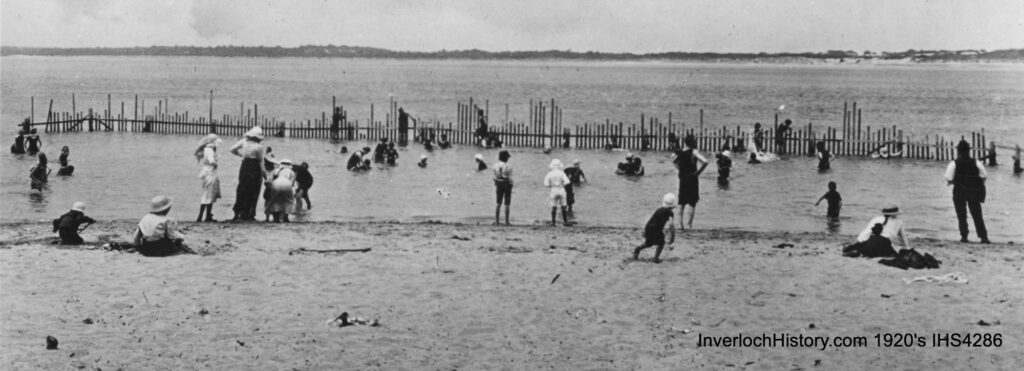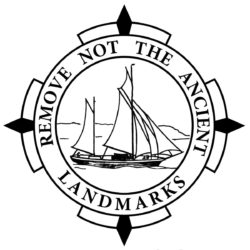(Note: This is a text excerpt. Refer to the newsletter PDF for the complete newsletter including images)
Classic Wooden Dinghy Regatta 2016
We have recently received a notice informing us that planning is well underway for the 2016 Regatta. Because Australia Day 2016 falls on a Tuesday, the program is spread over four days, from Saturday 23rd of January to Tuesday 26th of January.
Last year the Inverloch Historical Society opened the Rocket Shed during the Regatta for visitors to view the photographs and read all the other relevant details about the history of the Rocket Shed.
Guest Speaker – Shirley Holland
In February 2014, Shirley spoke at a general meeting about her trip to China. It was a very interesting talk, resulting in Shirley offering to return to speak on another occasion. This time, Shirley spoke about the books she has written during the last 20 years. She has written three books, one about her ancestry featuring both of her grandfathers. The second book was an account of the 41 years she and her husband had together, on the farm, and the numerous travels they had during those years.
Shirley’s third book was the story of her life as a widow. With a school friend from Korumburra, she had many wonderful trips overseas. The books are now finished, all of her children have copies and so do her grandchildren.
Her story today was of her maternal grandfather Richard Aitken Pryor who was born in Cornwall in 1865. His mother’s name was Julia. His father, Shirley’s great grandfather, also named Richard Pryor, was the owner of a Tin Mine, and like other Tin mine owners he was known as Captain Pryor. They lived in a place called Redruth, a nearby hill was called Carnbrae which means “Rocky Hill”.
When Julia was two months pregnant, she was widowed when her husband fell from a horse, he was only 35. When a baby boy was born he was named Richard after his Father.
The Mine was looked after by a cousin with the expectation that the Mine would belong to Richard when he turned 21. Julia was remarried to a Methodist Minister and they had three daughters. When Richard was eight his mother died and he was orphaned. His stepfather remarried and so Shirley’s grandfather Richard was brought up by a stepmother and stepfather. It was fortunate however that he was a member of a loving family. He was sent to Taunton College in Cornwall for his education and later on to a Grammar school in Yorkshire. After that, he did a seven year apprenticeship with the Yorkshire spinning mills.
When he turned 21, Richard went to claim his inheritance only to find that it was completely in the hands of his cousin’s family. He had no money to begin a court case, so he had to give up the idea of owning a Tin Mine.
Richard met Nell in London and eventually they became engaged. Richard decided to leave for Australia in 1888, but he was unable to take Nell. The journey took six weeks. He arrived in Adelaide where he stayed for two years, however he was lonely and didn’t make any progress with his life. It was suggested to him that he go to Flinders Lane in Melbourne where there were better prospects.
Richard moved to Melbourne in 1889.He called for Nell to come to Australia and marry him. She travelled to Australia on a steamship and it cost her 30 pounds. They were married in a private home and eventually moved to a home in Hawthorn. Richard became the Manager of a shirt factory in Fitzroy.
He also became one of the first businessmen to use a catchy phrase to advertise. “ABC Shirts – Australia’s Best Collars.” Their first daughter Eileen died at the age of three, their next daughter, Dora was Shirley’s mother and there were three more daughters. In 1907 they built a home in Barkers rd. Hawthorn, it was called “Carnbrae”. The garden was landscaped by Richard, and Nell had a reputation as a very good artist. All the girls attended the nearby M.L.C. and the family attended the Oxley rd. Methodist Church. Richard was Vice President of the Chamber of Manufacturers for 17 years. He was unable to be President as he didn’t own the factory he managed.
In 1903 the Acme Clothing Factory opened new premises. In1922 Richard resigned from the Acme Factory and moved to Sydney for two years where he managed a “Snows” store. On return he bought a factory but it was not a success as it was the time of the Depression. The family moved from Hawthorn to a home in Canterbury next door to Graham Bell the Musician.
Shirley remembers her grandfather Richard as small man, similar to many Cornish people. He walked with a spring in his step, he often worked in the garden. He had gnarled hands and when in the garden he sat on his wheelbarrow and smoked his pipe. He died in 1945 aged 79 and was buried from the Auburn Methodist Church.
Shirley was thanked by Shirley Burchett for her interesting talk today and presented with a basket of fruit in appreciation.
Excursion to Lower Tarwin
On October 28th, four carloads of members travelled to Tarwin for an excursion with our patron Eulalie Brewster. The main focus of the outing was the Tarwin Lower cemetery where we inspected the graves of some of the pioneering families of the district, most notably those of the Black and Cashin families. Eulalie gave us some interesting information relating to each family Also in the cemetery we viewed the last resting place of Captain Osterman survivor of the ill fated “Magnat” Having survived the sinking of his vessel, Captain Osterman succumbed some time later to the effects of the severe stress caused by the event and was buried at Tarwin Lower. On leaving the cemetery we drove past the site of the first school and stopped at the R.V.Fisher Park, named after the first teacher of Cashin’s Hill school, where Eulalie again gave us some interesting facts about it. She also told us about the Riverview Hotel which had been brought by bullock wagon from Bright. Mary Jongebloed, a lady who spent her early years in the district also gave us a couple of amusing anecdotes relating to her family’s time in the area. On the way back to Inverloch we made a slight detour through “Drumdelmara”, the area around Mahers Landing and Treadwells Rd. once a very early settlement.
Thanks to Eulalie & Robyn for this report.

